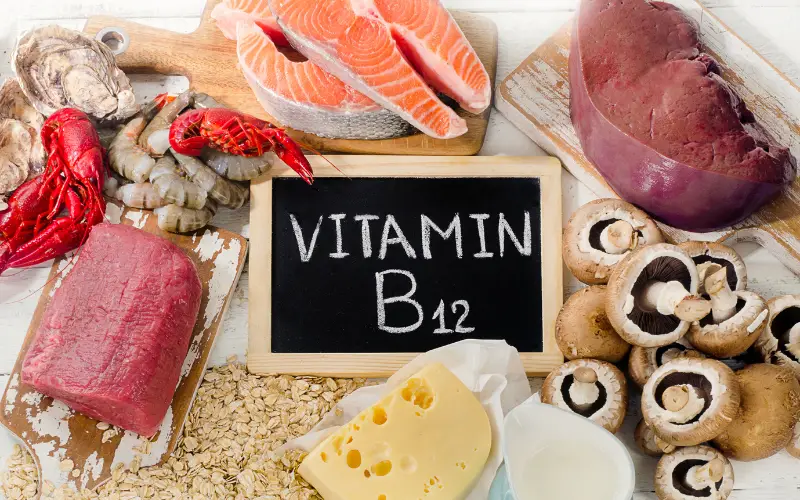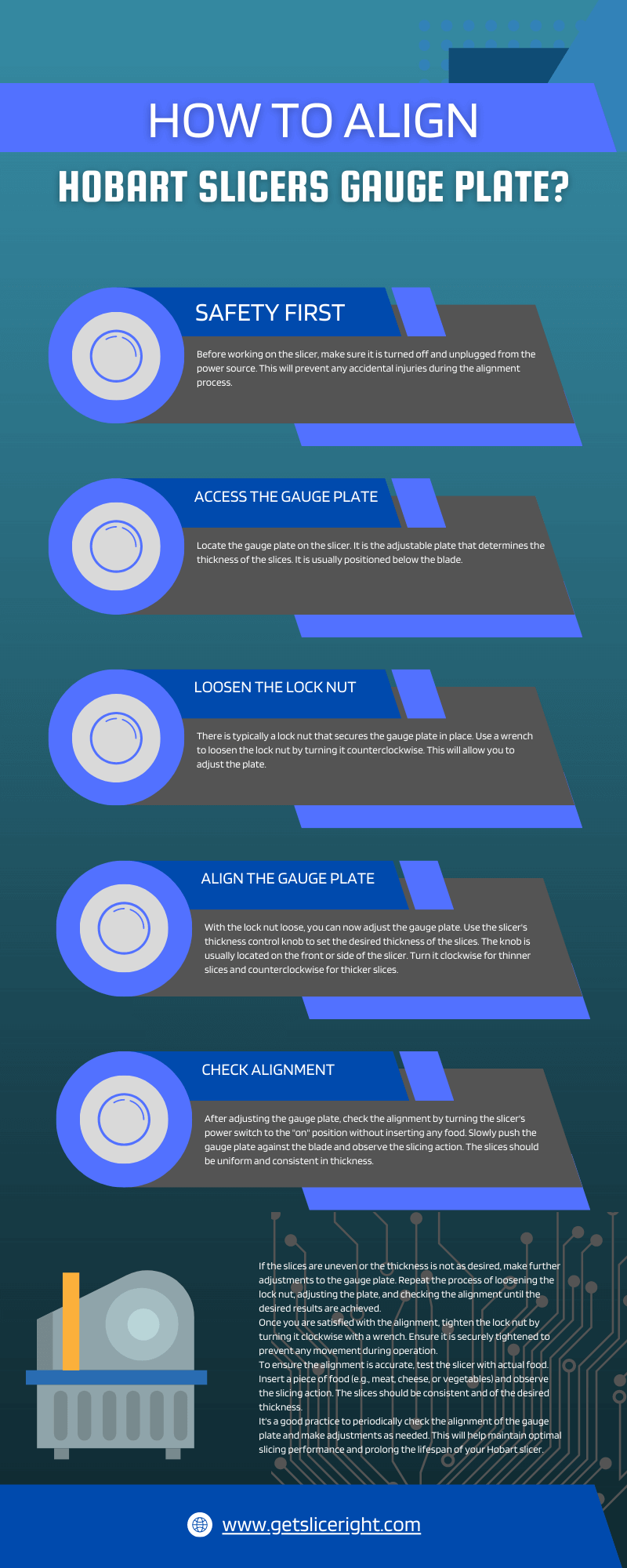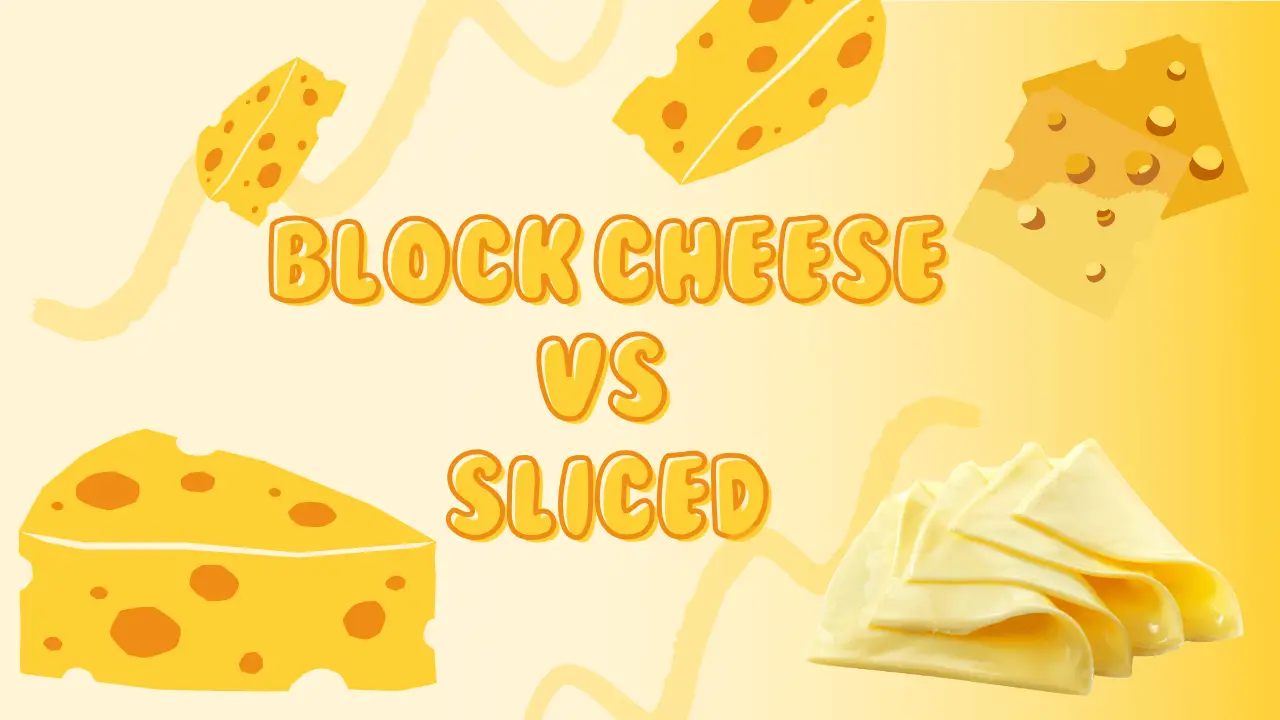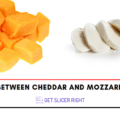A slice of Swiss cheese contains a good amount of vitamin B12. It is an essential nutrient that helps maintain normal brain and nerve function, produce genetic material, form red blood cells, and support the body’s metabolism. Usually, in a slice of Swiss cheese, there is 0.9 mcg of Vitamin B12, about a third of the Recommended Dietary Allowance. This amount can vary depending on the cheese.
What Is Swiss Cheese?
Swiss cheese originated in Switzerland and is known for its signature holes, or “eyes,” which form during aging. It’s made from cow’s milk with cultures added to give it a distinct flavor. It has a mild, nutty taste and can be used in many dishes.
What Is Vitamin B12?

Vitamin B12 is a nutrient in dairy products, eggs, and other animal-based foods. It plays an important role in red blood cell production, nerve function, and the production of DNA. It is essential for those following a vegetarian or vegan diet, as B12 is not found in plant-based foods.
How Swiss Cheese Is Made?

Swiss cheese is a type of cheese made from cow’s milk. It has a slightly nutty flavor, and its texture is slightly crumbly. Swiss cheese is known for its large holes, or eyes created when carbon dioxide gas forms in the curd during aging.
How Much B12 Is In A Slice Of Swiss Cheese?
The amount of B12 in a slice of Swiss cheese varies depending on the type and brand, but generally 0.9 micrograms per gram (mcg/g). A slice of Swiss cheese weighing 28 grams may contain approximately 25 mcg of B12. This amount of B12 is equivalent to 16% of the recommended daily value for adults and children over 4 years old. It should be noted that this is an average so some brands may have more or less than 0.9 mcg/g. As12 is essential for proper brain development and red blood cell formation important to get enough in your diet. Swiss can be a great way to the B12 your body needs
Where You Can Use Swiss Cheese?

Swiss cheese is a popular choice in sandwiches, burgers, and other recipes that call for cheese slices. It can also be used as an ingredient in sauces or casseroles. Because of its mild flavor, it can be easily incorporated into various dishes.
Benefits Of Vitamin B 12
- Vitamin B 12 helps form red blood cells, which carry oxygen throughout the body and helps prevent anemia.
- It is necessary for nerve tissue health, including the brain and spinal cord.
- Vitamin B 12 can help reduce the risk of heart disease by lowering homocysteine levels in the blood, a type of amino acid linked to coronary artery disease.
- It also helps brain development and function and maintains healthy skin and hair.
- Vitamin B 12 is important for the body to break down certain proteins, carbohydrates, and fats into energy.
What Are The Sources Of Vitamin B12?
- Eggs: One large egg contains 0.6 mcg of vitamin B12 or 25 percent of the daily value (DV).
- Fish: Some types of fish, such as wild-caught salmon and trout, are especially high in vitamin B12. A 3-ounce serving can provide up to 6.5 mcg or 270 percent of the DV.
- Red Meat: Red meats are some of the best sources of vitamin B12. A 3-ounce portion of cooked beef or lamb can provide up to 2.4 mcg, or 100 percent of the DV.
- Dairy: Dairy products are another excellent source of vitamin B12. A cup of low-fat milk can provide 1.2 mcg, or 50 percent of the DV, while a slice of Swiss cheese contains 0.9 mcg, or 38 percent.
FAQs
What are the symptoms of vitamin B12 deficiency?
Symptoms of vitamin B12 deficiency include fatigue, weakness, anemia, nerve damage, and cognitive decline.
Who is at risk for vitamin B12 deficiency?
Individuals who follow a plant-based diet or have certain medical conditions may be at a higher risk for vitamin B12 deficiency and should consider supplementation or consuming fortified foods.
What is better for health, cheese or Mayonnaise?
This depends on the individual; some may have dietary restrictions or allergies. Cheese is a good source of calcium and protein, while Mayonnaise contains healthy fats and other vitamins. Both are nutritious options in moderation.
Do people eat Swiss cheese with holes in it?
Yes, people eat Swiss cheese with holes in it. The holes are made during the cheese-making process and are an iconic part of Swiss cheese.
Conclusion

A slice of Swiss cheese contains approximately 0.9 micrograms of Vitamin B12, about a fifth of your recommended daily intake for adults. While it might not be the most concentrated source, Swiss cheese can still help you reach your daily needs and should have a place in your diet. Additionally, Swiss cheese is packed with important nutrients such as calcium, Vitamin A, and protein. Eating a single serving of Swiss cheese is an easy way to get all its benefits while helping you reach your daily Vitamin B12 needs.

John Hebdon is a food enthusiast, passionate chef, and author of various articles and blog posts related to food and cooking. With a deep love for all things culinary, John’s blog serves as a platform to share his extensive kitchen experiences with a broader audience.
In addition to his culinary expertise, John has a flair for writing and a natural ability to share his passion for food with others. His articles and blog posts are informative, engaging, and packed with practical tips for readers of all skill levels.
As a food enthusiast and writer, John is always on the lookout for new and exciting culinary experiences. Whether it’s trying out a new restaurant, experimenting with a new recipe, or simply sharing a favorite dish with friends and family, John is always eager to explore and share the world of food with others.







